
List of Catholic scientists
Encyclopedia
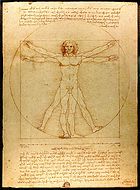
Galileo Galilei
Galileo Galilei , was an Italian physicist, mathematician, astronomer, and philosopher who played a major role in the Scientific Revolution. His achievements include improvements to the telescope and consequent astronomical observations and support for Copernicanism...
, Rene Descartes
René Descartes
René Descartes ; was a French philosopher and writer who spent most of his adult life in the Dutch Republic. He has been dubbed the 'Father of Modern Philosophy', and much subsequent Western philosophy is a response to his writings, which are studied closely to this day...
, Nicolas Copernicus, Louis Pasteur
Louis Pasteur
Louis Pasteur was a French chemist and microbiologist born in Dole. He is remembered for his remarkable breakthroughs in the causes and preventions of diseases. His discoveries reduced mortality from puerperal fever, and he created the first vaccine for rabies and anthrax. His experiments...
, Blaise Pascal
Blaise Pascal
Blaise Pascal , was a French mathematician, physicist, inventor, writer and Catholic philosopher. He was a child prodigy who was educated by his father, a tax collector in Rouen...
, André-Marie Ampère
André-Marie Ampère
André-Marie Ampère was a French physicist and mathematician who is generally regarded as one of the main discoverers of electromagnetism. The SI unit of measurement of electric current, the ampere, is named after him....
, Gregor Mendel
Gregor Mendel
Gregor Johann Mendel was an Austrian scientist and Augustinian friar who gained posthumous fame as the founder of the new science of genetics. Mendel demonstrated that the inheritance of certain traits in pea plants follows particular patterns, now referred to as the laws of Mendelian inheritance...
, Charles-Augustin de Coulomb
Charles-Augustin de Coulomb
Charles-Augustin de Coulomb was a French physicist. He is best known for developing Coulomb's law, the definition of the electrostatic force of attraction and repulsion. The [SI unit] of charge, the coulomb, was named after him....
, Pierre de Fermat
Pierre de Fermat
Pierre de Fermat was a French lawyer at the Parlement of Toulouse, France, and an amateur mathematician who is given credit for early developments that led to infinitesimal calculus, including his adequality...
, Antoine Laurent Lavoisier, Marin Mersenne
Marin Mersenne
Marin Mersenne, Marin Mersennus or le Père Mersenne was a French theologian, philosopher, mathematician and music theorist, often referred to as the "father of acoustics"...
, Alessandro Volta
Alessandro Volta
Count Alessandro Giuseppe Antonio Anastasio Gerolamo Umberto Volta was a Lombard physicist known especially for the invention of the battery in 1800.-Early life and works:...
, Augustin-Louis Cauchy, Pierre Duhem
Pierre Duhem
Pierre Maurice Marie Duhem was a French physicist, mathematician and philosopher of science, best known for his writings on the indeterminacy of experimental criteria and on scientific development in the Middle Ages...
, Jean-Baptiste Dumas
Jean-Baptiste Dumas
Jean Baptiste André Dumas was a French chemist, best known for his works on organic analysis and synthesis, as well as the determination of atomic weights and molecular weights by measuring vapor densities...
, Roger Boscovich, Pierre Gassendi
Pierre Gassendi
Pierre Gassendi was a French philosopher, priest, scientist, astronomer, and mathematician. With a church position in south-east France, he also spent much time in Paris, where he was a leader of a group of free-thinking intellectuals. He was also an active observational scientist, publishing the...
, and Georgius Agricola, to name a few.
Catholic scientists are considered the fathers of numerous scientific fields, including, but not limited to, modern physics, acoustics, mineralogy, modern chemistry, modern anatomy, stratigraphy, bacteriology, genetics, analytical geometry, and heliocentric cosmology. Inventions from Catholic scientists include the battery, the barometer, the stethoscope, the mechanical calculator, braille, mechanical movable type printing, and the Foucault pendulum. Three electrical units are named after Catholic scientists as well: the amp, the volt, and the coulomb.
The Catholic Church has supported scientific research since the emergence of the European universities in the Middle Ages
Middle Ages
The Middle Ages is a periodization of European history from the 5th century to the 15th century. The Middle Ages follows the fall of the Western Roman Empire in 476 and precedes the Early Modern Era. It is the middle period of a three-period division of Western history: Classic, Medieval and Modern...
. The field of astronomy is a prime example. J.L. Heilbron in his book The Sun in the Church: Cathedrals as Solar Observatories writes that "The Roman Catholic Church gave more financial aid and support to the study of astronomy for over six centuries, from the recovery of ancient learning during the late Middle Ages into the Enlightenment, than any other, and, probably, all other, institutions." Scientific support continues through the present day. The Pontifical Academy of Sciences
Pontifical Academy of Sciences
The Pontifical Academy of Sciences is a scientific academy of the Vatican, founded in 1936 by Pope Pius XI. It is placed under the protection of the reigning Supreme Pontiff. Its aim is to promote the progress of the mathematical, physical and natural sciences and the study of related...
was founded in 1936 by Pope Pius XI, with the aim of promoting the progress of the mathematical, physical and natural sciences and the study of related epistemological problems. The academy holds a membership roster of the most respected names in 20th century science, many of them Nobel laureates. Also worth noting is the Vatican Observatory
Vatican Observatory
The Vatican Observatory is an astronomical research and educational institution supported by the Holy See. Originally based in Rome, it now has headquarters and laboratory at the summer residence of the Pope in Castel Gandolfo, Italy, and an observatory at the Mount Graham International...
, which is an astronomical research and educational institution supported by the Holy See
Holy See
The Holy See is the episcopal jurisdiction of the Catholic Church in Rome, in which its Bishop is commonly known as the Pope. It is the preeminent episcopal see of the Catholic Church, forming the central government of the Church. As such, diplomatically, and in other spheres the Holy See acts and...
.
In his 1996 encyclical Fides et Ratio Pope John Paul II
Pope John Paul II
Blessed Pope John Paul II , born Karol Józef Wojtyła , reigned as Pope of the Catholic Church and Sovereign of Vatican City from 16 October 1978 until his death on 2 April 2005, at of age. His was the second-longest documented pontificate, which lasted ; only Pope Pius IX ...
wrote that "Faith and reason are like two wings on which the human spirit rises to the contemplation of truth." Pope Benedict XVI
Pope Benedict XVI
Benedict XVI is the 265th and current Pope, by virtue of his office of Bishop of Rome, the Sovereign of the Vatican City State and the leader of the Catholic Church as well as the other 22 sui iuris Eastern Catholic Churches in full communion with the Holy See...
re-emphasized the importance of reason in his famous 2006 address at Regensburg. But the emphasis on reason is not a recent development in the Church's history. In the first few centuries of the Church, the Church Fathers appropriated the best of Greek Philosophy in defense of the Faith. This appropriation culminated in the 13th century writings of Thomas Aquinas
Thomas Aquinas
Thomas Aquinas, O.P. , also Thomas of Aquin or Aquino, was an Italian Dominican priest of the Catholic Church, and an immensely influential philosopher and theologian in the tradition of scholasticism, known as Doctor Angelicus, Doctor Communis, or Doctor Universalis...
, whose synthesis of faith and reason has influenced Catholic thought for eight centuries. Because of this great synthesis, it should be no surprise that many historians of science trace the foundations of modern science to the 13th century. These writers include Edward Grant
Edward Grant
Edward Grant is an American historian. He was named a Distinguished Professor in 1983. Other honors include the 1992 George Sarton Medal, for "a lifetime scholarly achievement" as an historian of science.-Biography:...
, James Hannam, and Pierre Duhem
Pierre Duhem
Pierre Maurice Marie Duhem was a French physicist, mathematician and philosopher of science, best known for his writings on the indeterminacy of experimental criteria and on scientific development in the Middle Ages...
, to name a few.
Yet, the Galileo affair has come to typify the Church's relationship with science, although it was an exception rather than a rule. Blessed John Henry Cardinal Newman
John Henry Cardinal Newman
John Henry Newman, D.D., C.O. , also referred to as Cardinal Newman and Blessed John Henry Newman, was an important figure in the religious history of England in the 19th century...
has referred to the Galileo affair as the "one stock argument" against the Church. The standard treatment of Galileo as a martyr for science has been overturned by modern historians, however. In fact, his theories were celebrated by popes and churchmen alike, with members of the Jesuits personally verifying many of his observations. Galileo encountered trouble when he presented heliocentrism as fact rather than theory, when he lacked the necessary proofs to overturn long-standing science.
The Catholic contribution to science has been immense and deserves to be examined in its totality.
Catholic scientists
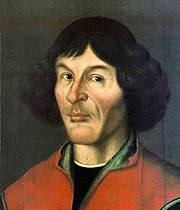
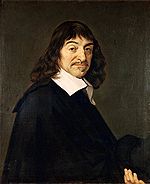
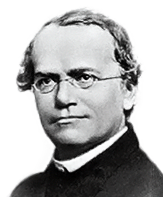
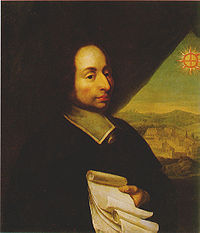
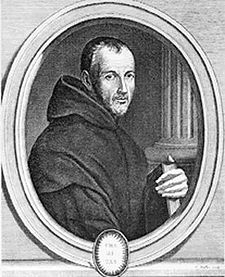
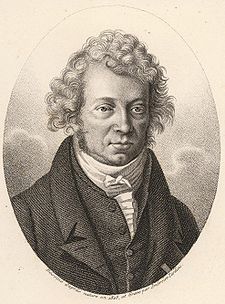
- Maria Gaetana AgnesiMaria Gaetana AgnesiMaria Gaetana Agnesi was an Italian linguist, mathematician, and philosopher. Agnesi is credited with writing the first book discussing both differential and integral calculus. She was an honorary member of the faculty at the University of Bologna...
(1718–1799) - Mathematician who wrote on differential and integral calculus - Georgius Agricola (1494–1555) - Father of Mineralogy
- Albertus MagnusAlbertus MagnusAlbertus Magnus, O.P. , also known as Albert the Great and Albert of Cologne, is a Catholic saint. He was a German Dominican friar and a bishop, who achieved fame for his comprehensive knowledge of and advocacy for the peaceful coexistence of science and religion. Those such as James A. Weisheipl...
(c.1206-1280) - Patron saint of natural sciences - André-Marie AmpèreAndré-Marie AmpèreAndré-Marie Ampère was a French physicist and mathematician who is generally regarded as one of the main discoverers of electromagnetism. The SI unit of measurement of electric current, the ampere, is named after him....
(1775–1836) - One of the main discovers of electromagnetism - Amedeo AvogadroAmedeo AvogadroLorenzo Romano Amedeo Carlo Avogadro di Quaregna e di Cerreto, Count of Quaregna and Cerreto was an Italian savant. He is most noted for his contributions to molecular theory, including what is known as Avogadro's law...
(1776–1856) - Noted for contributions to molecular theory and Avogadro's Law - Roger BaconRoger BaconRoger Bacon, O.F.M. , also known as Doctor Mirabilis , was an English philosopher and Franciscan friar who placed considerable emphasis on the study of nature through empirical methods...
(c. 1214-1294) - Franciscan friar and early advocate of the scientific method - Antoine César BecquerelAntoine César BecquerelAntoine César Becquerel was a French scientist and a pioneer in the study of electric and luminescent phenomena.He was born at Châtillon sur LoCrea...
(1788-1878) - Pioneer in the study of electric and luminescent phenomena - Henri BecquerelHenri BecquerelAntoine Henri Becquerel was a French physicist, Nobel laureate, and the discoverer of radioactivity along with Marie Curie and Pierre Curie, for which all three won the 1903 Nobel Prize in Physics.-Early life:...
(1852–1908) - Awarded the Nobel Prize in physics for his co-discovery of radioactivity - Jacques Philippe Marie BinetJacques Philippe Marie BinetJacques Philippe Marie Binet was a French mathematician, physicist and astronomer born in Rennes; he died in Paris, France, in 1856. He made significant contributions to number theory, and the mathematical foundations of matrix algebra which would later lead to important contributions by Cayley...
(1786–1856) - Mathematician known for Binet's formula and his contributions to number theory - Jean-Baptiste BiotJean-Baptiste BiotJean-Baptiste Biot was a French physicist, astronomer, and mathematician who established the reality of meteorites, made an early balloon flight, and studied the polarization of light.- Biography :...
(1774–1862) - Physicist who established the reality of meteorites and studied polarization of light - Giovanni Alfonso BorelliGiovanni Alfonso BorelliGiovanni Alfonso Borelli was a Renaissance Italian physiologist, physicist, and mathematician. He contributed to the modern principle of scientific investigation by continuing Galileo's custom of testing hypotheses against observation...
(1608-1679) - Often referred to as the father of modern biomechanics - Roger Joseph BoscovichRoger Joseph BoscovichRuđer Josip Bošković was a theologian, physicist, astronomer, mathematician, philosopher, diplomat, poet, Jesuit, and a polymath from the city of Dubrovnik in the Republic of Ragusa , who studied and lived in Italy and France where he also published many of his works.He is famous for...
(1711–1787) - Jesuit priest and polymath known for his atomic theory and many other scientific contributions - Louis BrailleLouis BrailleLouis Braille was the inventor of braille, a system of reading and writing used by people who are blind or visually impaired...
(1809–1852) - Inventor of the Braille reading and writing system - Jean BuridanJean BuridanJean Buridan was a French priest who sowed the seeds of the Copernican revolution in Europe. Although he was one of the most famous and influential philosophers of the late Middle Ages, he is today among the least well known...
(c.1300-after 1358) - French priest who developed the theory of impetus - Alexis CarrelAlexis CarrelAlexis Carrel was a French surgeon and biologist who was awarded the Nobel Prize in Physiology or Medicine in 1912 for pioneering vascular suturing techniques. He invented the first perfusion pump with Charles A. Lindbergh opening the way to organ transplantation...
(1873–1944) - Awarded the Nobel Prize in Medicine for pioneering vascular suturing techniques - Giovanni Domenico CassiniGiovanni Domenico CassiniThis article is about the Italian-born astronomer. For his French-born great-grandson, see Jean-Dominique Cassini.Giovanni Domenico Cassini was an Italian/French mathematician, astronomer, engineer, and astrologer...
(1625–1712) - First to observe four of Saturn's moons and the co-discoverer of the Great Red Spot on Jupiter - Augustin-Louis Cauchy (1789–1857) - Mathematician who was an early pioneer in analysis
- Andrea CesalpinoAndrea CesalpinoAndrea Cesalpino was an Italian physician, philosopher and botanist....
(c.1525-1603) - Botanist who also theorized on the circulation of blood - Jean-François ChampollionJean-François ChampollionJean-François Champollion was a French classical scholar, philologist and orientalist, decipherer of the Egyptian hieroglyphs....
(1790-1832) - Published the first translation of the Rosetta Stone - Guy de ChauliacGuy de ChauliacGuy de Chauliac or Guigonis de Caulhaco was a French physician and surgeon who wrote a lengthy and influential treatise on surgery in Latin, titled Chirurgia Magna...
(c.1300-1368) - The most eminent surgeon of the Middle Ages - Christopher ClaviusChristopher ClaviusChristopher Clavius was a German Jesuit mathematician and astronomer who was the main architect of the modern Gregorian calendar...
(1538–1612) - Jesuit who was the main architect of the Gregorian calendar - Mateo Realdo Colombo (1516–1559) - Discovered the pulminary circuit, which paved the way for Harvey's discovery of circulation
- Charles-Augustin de CoulombCharles-Augustin de CoulombCharles-Augustin de Coulomb was a French physicist. He is best known for developing Coulomb's law, the definition of the electrostatic force of attraction and repulsion. The [SI unit] of charge, the coulomb, was named after him....
(1736–1806) - Physicist known for developing Coulomb's law - Nicolaus CopernicusNicolaus CopernicusNicolaus Copernicus was a Renaissance astronomer and the first person to formulate a comprehensive heliocentric cosmology which displaced the Earth from the center of the universe....
(1473–1543) - First person to formulate a comprehensive heliocentric cosmology - René DescartesRené DescartesRené Descartes ; was a French philosopher and writer who spent most of his adult life in the Dutch Republic. He has been dubbed the 'Father of Modern Philosophy', and much subsequent Western philosophy is a response to his writings, which are studied closely to this day...
(1596–1650) - Father of modern philosophy and analytic geometry - Pierre DuhemPierre DuhemPierre Maurice Marie Duhem was a French physicist, mathematician and philosopher of science, best known for his writings on the indeterminacy of experimental criteria and on scientific development in the Middle Ages...
(1861–1916) - Historian of science who made important contributions to hydrodynamics, elasticity, and thermodynamics - Jean-Baptiste DumasJean-Baptiste DumasJean Baptiste André Dumas was a French chemist, best known for his works on organic analysis and synthesis, as well as the determination of atomic weights and molecular weights by measuring vapor densities...
(1800–1884) - Chemist who established new values for the atomic mass of thirty elements - Christian de DuveChristian de DuveChristian René, viscount de Duve is a Nobel Prize-winning cytologist and biochemist. De Duve was born in Thames Ditton, Surrey, Great Britain, as a son of Belgian refugees. They returned to Belgium in 1920...
(1917–present) - Nobel Prize winning cytologist and biochemist - John Eccles (neurophysiologist) (1903–1997) - Awarded the Nobel Prize in Medicine for his work on the synapse
- Stephan Endlicher (1804-1849) - Botanist who formulated a major system of plant classification
- Bartolomeo EustachiBartolomeo EustachiBartolomeo Eustachi , also known by his Latin name of Eustachius, was one of the founders of the science of human anatomy.-Life:...
(c.1500-1574) - One of the founders of human anatomy - Hieronymus FabriciusHieronymus FabriciusHieronymus Fabricius or Girolamo Fabrizio or by his Latin name Fabricus ab Aquapendende also Girolamo Fabrizi d'Acquapendente was a pioneering anatomist and surgeon known in medical science as "The Father of Embryology."...
(1537–1619) - Father of embryology - Gabriele FalloppioGabriele FalloppioGabriele Falloppio , often known by his Latin name Fallopius, was one of the most important anatomists and physicians of the sixteenth century....
(1523–1562) - One of the most important anatomists and physicians of the sixteenth century - Pierre de FermatPierre de FermatPierre de Fermat was a French lawyer at the Parlement of Toulouse, France, and an amateur mathematician who is given credit for early developments that led to infinitesimal calculus, including his adequality...
(1601–1665) - Number theorist who contributed to the early development of calculus - Enrico FermiEnrico FermiEnrico Fermi was an Italian-born, naturalized American physicist particularly known for his work on the development of the first nuclear reactor, Chicago Pile-1, and for his contributions to the development of quantum theory, nuclear and particle physics, and statistical mechanics...
(1901–1954) - Awarded the Nobel Prize in physics for his work in induced radioactivity - FibonacciFibonacciLeonardo Pisano Bigollo also known as Leonardo of Pisa, Leonardo Pisano, Leonardo Bonacci, Leonardo Fibonacci, or, most commonly, simply Fibonacci, was an Italian mathematician, considered by some "the most talented western mathematician of the Middle Ages."Fibonacci is best known to the modern...
(c.1170-c.1250) - Popularized Hindu-Arabic numerals in Europe and discovered the Fibonacci sequence - Hippolyte FizeauHippolyte FizeauArmand Hippolyte Louis Fizeau was a French physicist.-Biography:Fizeau was born in Paris. His earliest work was concerned with improvements in photographic processes. Following suggestions by François Arago, Léon Foucault and Fizeau collaborated in a series of investigations on the interference of...
(1819-1896) - The first person to determine experimentally the velocity of light - Léon FoucaultLéon FoucaultJean Bernard Léon Foucault was a French physicist best known for the invention of the Foucault pendulum, a device demonstrating the effect of the Earth's rotation...
(1819–1868) - Invented the Foucault pendulum to measure the effect of the earth's rotation - Joseph von FraunhoferJoseph von FraunhoferJoseph von Fraunhofer was a German optician. He is known for the discovery of the dark absorption lines known as Fraunhofer lines in the Sun's spectrum, and for making excellent optical glass and achromatic telescope objectives.-Biography:Fraunhofer was born in Straubing, Bavaria...
(1787–1826) - Discovered Fraunhofer lines in the sun's spectrum - Augustin-Jean FresnelAugustin-Jean FresnelAugustin-Jean Fresnel , was a French engineer who contributed significantly to the establishment of the theory of wave optics. Fresnel studied the behaviour of light both theoretically and experimentally....
(1788–1827) - Made significant contributions to the theory of wave optics - Galileo GalileiGalileo GalileiGalileo Galilei , was an Italian physicist, mathematician, astronomer, and philosopher who played a major role in the Scientific Revolution. His achievements include improvements to the telescope and consequent astronomical observations and support for Copernicanism...
(1564–1642) - Father of modern science - Luigi GalvaniLuigi GalvaniLuigi Aloisio Galvani was an Italian physician and physicist who lived and died in Bologna. In 1791, he discovered that the muscles of dead frogs legs twitched when struck by a spark...
(1737–1798) - Formulated the theory of animal electricity - Pierre GassendiPierre GassendiPierre Gassendi was a French philosopher, priest, scientist, astronomer, and mathematician. With a church position in south-east France, he also spent much time in Paris, where he was a leader of a group of free-thinking intellectuals. He was also an active observational scientist, publishing the...
(1592–1655) - French astronomer and mathematician who published the first data on the transit of Mercury and gave the Aurora Borealis its name - Joseph Louis Gay-LussacJoseph Louis Gay-Lussac- External links :* from the American Chemical Society* from the Encyclopædia Britannica, 10th Edition * , Paris...
(1778-1850) - Chemist known for two laws related to gases - Francesco Maria GrimaldiFrancesco Maria GrimaldiFrancesco Maria Grimaldi was an Italian Jesuit priest, mathematician and physicist who taught at the Jesuit college in Bologna....
(1618–1663) - Jesuit who discovered the diffraction of light - Robert GrossetesteRobert GrossetesteRobert Grosseteste or Grossetete was an English statesman, scholastic philosopher, theologian and Bishop of Lincoln. He was born of humble parents at Stradbroke in Suffolk. A.C...
(c.1175-1253) - Bishop who has been called "the first man to write down a complete set of steps for performing a scientific experiment." - Johannes Gutenberg (c.1398-1468) - Inventor of the printing press
- Jean Baptiste Julien d'Omalius d'HalloyJean Baptiste Julien d'Omalius d'HalloyJean Baptiste Julien d'Omalius d'Halloy was a Belgian geologist. He also wrote on races.- Early life and education :He was born at Liège, Belgium on February 16, 1783. He was the only son of an ancient and noble family, and his education was carefully directed...
(1783–1875) - One of the pioneers of modern geology - René Just HaüyRené Just HaüyRené Just Haüy – 3 June 1822 in Paris) was a French mineralogist, commonly styled the Abbé Haüy after he was made an honorary canon of Notre Dame. He is often referred to as the "Father of Modern Crystallography." -Biography:...
(1743–1822) - Priest, and father of crystallography - Eduard HeisEduard HeisEduard Heis was a German mathematician and astronomer.He completed his education at the University of Bonn in 1827, then taught mathematics at a school in Cologne. In 1832 he taught at Aachen, and remained there until 1852. He was then appointed by King Frederick William IV to a chair position at...
(1806-1877) - Astronomer who contributed the first true delineation of the Milky Way - Jan Baptist van HelmontJan Baptist van HelmontJan Baptist van Helmont was an early modern period Flemish chemist, physiologist, and physician. He worked during the years just after Paracelsus and iatrochemistry, and is sometimes considered to be "the founder of pneumatic chemistry"...
(1579-1644) - Founder of pneumatic chemistry - Charles HermiteCharles HermiteCharles Hermite was a French mathematician who did research on number theory, quadratic forms, invariant theory, orthogonal polynomials, elliptic functions, and algebra....
(1822–1901) - Mathematician who did research on number theory, quadratic forms, elliptic functions, and algebra - John Philip HollandJohn Philip HollandJohn Philip Holland was an Irish engineer who developed the first submarine to be formally commissioned by the U.S...
(1840–1914) - Developed the first submarine to be formally commissioned by the U.S. Navy - Antoine Laurent de JussieuAntoine Laurent de JussieuAntoine Laurent de Jussieu was a French botanist, notable as the first to propose a natural classification of flowering plants; much of his system remains in use today.-Life:...
(1748-1836) - The first to propose a natural classification of flowering plants - Athanasius KircherAthanasius KircherAthanasius Kircher was a 17th century German Jesuit scholar who published around 40 works, most notably in the fields of oriental studies, geology, and medicine...
(c.1601-1680) - Jesuit scholar who has been called "the last Renaissance man" - Nicolas Louis de LacailleNicolas Louis de LacailleAbbé Nicolas Louis de Lacaille was a French astronomer.He is noted for his catalogue of nearly 10,000 southern stars, including 42 nebulous objects. This catalogue, called Coelum Australe Stelliferum, was published posthumously in 1763. It introduced 14 new constellations which have since become...
(1713–1762) - French astronomer noted for cataloguing stars, nebulous objects, and constellations - René LaennecRené LaennecRené-Théophile-Hyacinthe Laennec was a French physician. He invented the stethoscope in 1816, while working at the Hôpital Necker and pioneered its use in diagnosing various chest conditions....
(1781–1826) - Physician who invented the stethoscope - Joseph Louis LagrangeJoseph Louis LagrangeJoseph-Louis Lagrange , born Giuseppe Lodovico Lagrangia, was a mathematician and astronomer, who was born in Turin, Piedmont, lived part of his life in Prussia and part in France, making significant contributions to all fields of analysis, to number theory, and to classical and celestial mechanics...
(1736-1813) - Mathematician and astronomer known for Lagrangian points and Lagrangian mechanics - Jean-Baptiste LamarckJean-Baptiste LamarckJean-Baptiste Pierre Antoine de Monet, Chevalier de la Marck , often known simply as Lamarck, was a French naturalist...
(1744-1829) - Biologist whose theories on evolution preceeded those of Darwin; also divided the animal kingdom into vertebrates and invertebrates - Karl LandsteinerKarl LandsteinerKarl Landsteiner , was an Austrian-born American biologist and physician of Jewish origin. He is noted for having first distinguished the main blood groups in 1900, having developed the modern system of classification of blood groups from his identification of the presence of agglutinins in the...
(1868–1943) - Nobel Prize winner who identified and classified the human blood types - Pierre-Simon LaplacePierre-Simon LaplacePierre-Simon, marquis de Laplace was a French mathematician and astronomer whose work was pivotal to the development of mathematical astronomy and statistics. He summarized and extended the work of his predecessors in his five volume Mécanique Céleste...
(1749–1827) - Famed mathematician and astronomer who has been called the "Newton of France" - Pierre André LatreillePierre André LatreillePierre André Latreille was a French zoologist, specialising in arthropods. Having trained as a Roman Catholic priest before the French Revolution, Latreille was imprisoned, and only regained his freedom after recognising a rare species he found in the prison, Necrobia ruficollis...
(1762-1833) - Pioneer in entomology - Antoine LavoisierAntoine LavoisierAntoine-Laurent de Lavoisier , the "father of modern chemistry", was a French nobleman prominent in the histories of chemistry and biology...
(1743–1794) - Father of modern chemistry - Georges LemaîtreGeorges LemaîtreMonsignor Georges Henri Joseph Édouard Lemaître was a Belgian priest, astronomer and professor of physics at the Catholic University of Louvain. He was the first person to propose the theory of the expansion of the Universe, widely misattributed to Edwin Hubble...
(1894–1966) - Father of the Big Bang theory - Marcello MalpighiMarcello MalpighiMarcello Malpighi was an Italian doctor, who gave his name to several physiological features, like the Malpighian tubule system.-Early years:...
(1628–1694) - Father of comparative physiology - Étienne-Louis MalusÉtienne-Louis Malus- External links :...
(1775-1812) - Discovered the polarization of light - Guglielmo MarconiGuglielmo MarconiGuglielmo Marconi was an Italian inventor, known as the father of long distance radio transmission and for his development of Marconi's law and a radio telegraph system. Marconi is often credited as the inventor of radio, and indeed he shared the 1909 Nobel Prize in Physics with Karl Ferdinand...
(1874–1937) - Father of long-distance radio transmission - Edme MariotteEdme MariotteEdme Mariotte was a French physicist and priest.- Biography :Edme Mariotte was the youngest son of Simon Mariotte, administrator at the district Til-Châtel , and Catherine Denisot . His parents lived in Til-Châtel and had 4 other children: Jean, Denise, Claude, and Catharine...
(c.1620-1684) - Priest who independently discovered Boyle's Law - Gregor MendelGregor MendelGregor Johann Mendel was an Austrian scientist and Augustinian friar who gained posthumous fame as the founder of the new science of genetics. Mendel demonstrated that the inheritance of certain traits in pea plants follows particular patterns, now referred to as the laws of Mendelian inheritance...
(1822–1884) - Father of genetics - Marin MersenneMarin MersenneMarin Mersenne, Marin Mersennus or le Père Mersenne was a French theologian, philosopher, mathematician and music theorist, often referred to as the "father of acoustics"...
(1588–1648) - Father of acoustics - Gaspard MongeGaspard MongeGaspard Monge, Comte de Péluse was a French mathematician, revolutionary, and was inventor of descriptive geometry. During the French Revolution, he was involved in the complete reorganization of the educational system, founding the École Polytechnique...
(1746-1818) - Father of descriptive geometry - Giovanni Battista MorgagniGiovanni Battista MorgagniGiovanni Battista Morgagni was an Italian anatomist, celebrated as the father of modern anatomical pathology.-Education:...
(1682–1771) - Father of modern anatomical pathology - Johannes Peter MüllerJohannes Peter MüllerJohannes Peter Müller , was a German physiologist, comparative anatomist, and ichthyologist not only known for his discoveries but also for his ability to synthesize knowledge.-Early years and education:...
(1801–1858) - Founder of modern physiology - John von NeumannJohn von NeumannJohn von Neumann was a Hungarian-American mathematician and polymath who made major contributions to a vast number of fields, including set theory, functional analysis, quantum mechanics, ergodic theory, geometry, fluid dynamics, economics and game theory, computer science, numerical analysis,...
(1903–1957) - Brilliant 20th century scientist who made major contributions to quantum mechanics, mathematical physics, and computer science - Jean-Antoine NolletJean-Antoine NolletJean-Antoine Nollet was a French clergyman and physicist. As a priest, he was also known as Abbé Nollet. He was particularly interested in the new science of electricity, which he explored with the help of Du Fay and Réaumur...
(1700-1770) - Discovered the phenomenon of osmosis in natural membranes. - William of OckhamWilliam of OckhamWilliam of Ockham was an English Franciscan friar and scholastic philosopher, who is believed to have been born in Ockham, a small village in Surrey. He is considered to be one of the major figures of medieval thought and was at the centre of the major intellectual and political controversies of...
(c.1288-c.1348) - Franciscan Friar known for Ockham's Razor - Nicole Oresme (c.1320-1382) - 14th century bishop who theorized the daily rotation of the earth on its axis
- Barnaba OrianiBarnaba Oriani__FORCETOC__Barnaba Oriani was an Italian priest, geodesist, astronomer and scientist.-Life:Oriani was born in Garegnano , the son of a mason, and died in Milan....
(1752-1832) - Known for Oriani's theorem and for his research on Uranus - Abraham OrteliusAbraham Orteliusthumb|250px|Abraham Ortelius by [[Peter Paul Rubens]]Abraham Ortelius thumb|250px|Abraham Ortelius by [[Peter Paul Rubens]]Abraham Ortelius (Abraham Ortels) thumb|250px|Abraham Ortelius by [[Peter Paul Rubens]]Abraham Ortelius (Abraham Ortels) (April 14, 1527 – June 28,exile in England to take...
(1527-1598) - Created the the first modern atlas and theorized on continental drift - Blaise PascalBlaise PascalBlaise Pascal , was a French mathematician, physicist, inventor, writer and Catholic philosopher. He was a child prodigy who was educated by his father, a tax collector in Rouen...
(1623–1662) - One of the most famous mathematicians of all time - Louis PasteurLouis PasteurLouis Pasteur was a French chemist and microbiologist born in Dole. He is remembered for his remarkable breakthroughs in the causes and preventions of diseases. His discoveries reduced mortality from puerperal fever, and he created the first vaccine for rabies and anthrax. His experiments...
(1822–1895) - Father of bacteriology - Nicolas-Claude Fabri de PeirescNicolas-Claude Fabri de PeirescNicolas-Claude Fabri de Peiresc was a French astronomer, antiquary and savant who maintained a wide correspondence with scientists and was a successful organizer of scientific inquiry...
(1580–1637) - Discovered the Orion Nebula - Georg von Peuerbach (1423–1461) - Has been called the father of mathematical and observational astronomy in the West
- Giuseppe PiazziGiuseppe PiazziGiuseppe Piazzi was an Italian Catholic priest of the Theatine order, mathematician, and astronomer. He was born in Ponte in Valtellina, and died in Naples. He established an observatory at Palermo, now the Osservatorio Astronomico di Palermo – Giuseppe S...
(1746-1826) - Theatine priest who discovered the asteroid Ceres and did important work cataloguing stars - Jean PicardJean PicardJean-Felix Picard was a French astronomer and priest born in La Flèche, where he studied at the Jesuit Collège Royal Henry-Le-Grand. He was the first person to measure the size of the Earth to a reasonable degree of accuracy in a survey conducted in 1669–70, for which he is honored with a...
(1620–1682) - French priest and father of modern astronomy in France - Francesco RediFrancesco RediFrancesco Redi was an Italian physician, naturalist, and poet.-Biography:The son of Gregorio Redi and Cecilia de Ghinci was born in Arezzo on February 18, 1626. After schooling with the Jesuits, he attended the University of Pisa...
(1626-1697) - His famous experiments with maggots were a major step in overturning the idea of spontaneous generation - Henri Victor RegnaultHenri Victor RegnaultHenri Victor Regnault was a French chemist and physicist best known for his careful measurements of the thermal properties of gases. He was an early thermodynamicist and was mentor to William Thomson in the late 1840s....
(1810-1878) - Chemist with two laws governing the specific heat of gases named after him - Giovanni Battista RiccioliGiovanni Battista RiccioliGiovanni Battista Riccioli was an Italian astronomer and a Catholic priest in the Jesuit order...
(1598–1671) - Jesuit priest and the first person to measure the acceleration due to gravity of falling bodies - Erwin SchrodingerErwin SchrödingerErwin Rudolf Josef Alexander Schrödinger was an Austrian physicist and theoretical biologist who was one of the fathers of quantum mechanics, and is famed for a number of important contributions to physics, especially the Schrödinger equation, for which he received the Nobel Prize in Physics in 1933...
(1887–1961) - Nobel Prize winner and one of the founders of quantum mechanics - Theodor SchwannTheodor SchwannTheodor Schwann was a German physiologist. His many contributions to biology include the development of cell theory, the discovery of Schwann cells in the peripheral nervous system, the discovery and study of pepsin, the discovery of the organic nature of yeast, and the invention of the term...
(1810–1882) - Founder of the theory of the cellular structure of animal organisms - Angelo SecchiAngelo Secchi-External links:...
(1818-1878) - Jesuit priest who developed the first system of stellar classification - Ignaz SemmelweisIgnaz SemmelweisIgnaz Philipp Semmelweis was a Hungarian physician now known as an early pioneer of antiseptic procedures. Described as the "savior of mothers", Semmelweis discovered that the incidence of puerperal fever could be drastically cut by the use of hand disinfection in obstetrical clinics...
(1818-1865) - Early pioneer of antiseptic procedures and the discoverer of the cause of puerperal fever - Lazzaro SpallanzaniLazzaro SpallanzaniLazzaro Spallanzani was an Italian Catholic priest, biologist and physiologist who made important contributions to the experimental study of bodily functions, animal reproduction, and essentially discovered echolocation...
(1729-1799]] - Priest and biologist who laid the groundwork for Pasteur's discoveries - Nicolas StenoNicolas StenoNicolas Steno |Latinized]] to Nicolaus Steno -gen. Nicolai Stenonis-, Italian Niccolo' Stenone) was a Danish pioneer in both anatomy and geology. Already in 1659 he decided not to accept anything simply written in a book, instead resolving to do research himself. He is considered the father of...
(1638–1686) - Bishop, and father of stratigraphy - Francesco Lana de TerziFrancesco Lana de TerziFrancesco Lana de Terzi was an Italian Jesuit, mathematician, naturalist and aeronautics pioneer...
(1631-1687) - Jesuit priest who has been called the father of aeronautics - Louis Jacques ThénardLouis Jacques ThénardLouis Jacques Thénard , was a French chemist.His father, a poor peasant, managed to have him educated at the academy of Sens, and sent him at the age of sixteen to study pharmacy in Paris. There he attended the lectures of Antoine François Fourcroy and Louis Nicolas Vauquelin...
(1777–1857) - Discovered hydrogen peroxide - Theodoric of FreibergTheodoric of FreibergTheodoric of Freiberg was a German member of the Dominican order and a theologian and physicist...
(c.1250-c.1310) - Gave the first geometrical analysis of the rainbow - Evangelista TorricelliEvangelista TorricelliEvangelista Torricelli was an Italian physicist and mathematician, best known for his invention of the barometer.-Biography:Evangelista Torricelli was born in Faenza, part of the Papal States...
(1608–1647) - Inventor of the barometer - Paolo dal Pozzo ToscanelliPaolo dal Pozzo ToscanelliPaolo dal Pozzo Toscanelli was an Italian mathematician, astronomer, and cosmographer.-Life:Paolo dal Pozzo Toscanelli was born in Florence, the son of the physician Dominic Toscanelli. Educated in mathematics at the University of Padua, he left in 1424 with the title of a doctor of...
(1397–1482) - One of the most distinguished scientists of the fifteenth century - Richard TowneleyRichard TowneleyRichard Towneley was an English mathematician and astronomer from Towneley near Burnley, Lancashire. He was one of a group of seventeenth century astronomers in the north of England, which included Jeremiah Horrocks, William Crabtree and William Gascoigne, the pioneer astronomers who laid the...
(1629-1707) - Mathematician and astronomer whose investigations and correspondence contributed to the formulation of Boyle's Law - Louis René TulasneLouis René TulasneLouis René Tulasne, aka Edmond Tulasne was a French botanist and mycologist who was born in Azay-le-Rideau. He originally studied law at Poitiers, but his interest later turned to botany. As a young man he accompanied botanist Auguste de Saint-Hilaire to South America to study the flora of Brazil...
(1815-1885) - Noted biologist with several genuses and species of fungi named after him - Louis Nicolas VauquelinLouis Nicolas VauquelinNicolas Louis Vauquelin , was a French pharmacist and chemist.-Early life:Vauquelin was born at Saint-André-d'Hébertot in Normandy, France. His first acquaintance with chemistry was gained as laboratory assistant to an apothecary in Rouen , and after various vicissitudes he obtained an introduction...
(1763–1829) - Discovered the chemical element Beryllium - Pierre VernierPierre VernierPierre Vernier was a French mathematician and instrument inventor. He was inventor and eponym of the vernier scale used in measuring devices....
(1580-1637) - Mathematician who invented the Vernier scale - Urbain Le Verrier (1811–1877) - Mathematician who predicted the discovery of Neptune
- Andreas Vesalius (1514–1564) - Father of modern human anatomy
- François VièteFrançois VièteFrançois Viète , Seigneur de la Bigotière, was a French mathematician whose work on new algebra was an important step towards modern algebra, due to its innovative use of letters as parameters in equations...
(1540–1603) - Father of Modern Algebra - Leonardo da VinciLeonardo da VinciLeonardo di ser Piero da Vinci was an Italian Renaissance polymath: painter, sculptor, architect, musician, scientist, mathematician, engineer, inventor, anatomist, geologist, cartographer, botanist and writer whose genius, perhaps more than that of any other figure, epitomized the Renaissance...
(1452–1519) - Renaissance anatomist, scientist, mathematician, and painter - Vincenzo VivianiVincenzo VivianiVincenzo Viviani was an Italian mathematician and scientist. He was a pupil of Torricelli and a disciple of Galileo.-Biography:...
(1622-1703) - Mathematician known for Viviani's theorem and Viviani's curve as well as his experiments to determine the speed of sound - Alessandro VoltaAlessandro VoltaCount Alessandro Giuseppe Antonio Anastasio Gerolamo Umberto Volta was a Lombard physicist known especially for the invention of the battery in 1800.-Early life and works:...
(1745–1827) - Physicist known for the invention of the battery - Wilhelm Heinrich WaagenWilhelm Heinrich WaagenWilhelm Heinrich Waagen was a geologist and paleontologist. He was born June 23, 1841 in Munich and died March 24, 1900 in Vienna.-Overview:He received a Doctor of Philosophy degree at the University of Munich, where he published an elaborate work on geology that was crowned by the university...
(1841–1900) - Geologist and paleontologist - E. T. WhittakerE. T. WhittakerEdmund Taylor Whittaker FRS FRSE was an English mathematician who contributed widely to applied mathematics, mathematical physics and the theory of special functions. He had a particular interest in numerical analysis, but also worked on celestial mechanics and the history of physics...
(1873–1956) - English mathematician who made contributions to applied mathematics and mathematical physics - Johann Joachim WinckelmannJohann Joachim WinckelmannJohann Joachim Winckelmann was a German art historian and archaeologist. He was a pioneering Hellenist who first articulated the difference between Greek, Greco-Roman and Roman art...
(1717–1768) - One of the founders of scientific archeology

